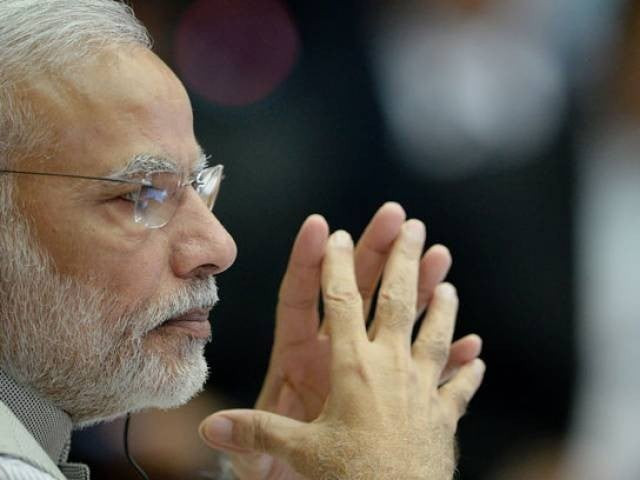Modi’s Pakistan obsession
There was a time when Pakistani public was accused of being too obsessed with India

There was a time when Pakistani public was accused of being too obsessed with India. PHOTO: REUTERS
Pakistan and India may have hostile relationship at the government level but people of the two countries privately do maintain contacts and relationships with each other. Even officials from the two countries when meet in private capacity never share the level of hostility that has been on public display otherwise. The retired generals and intelligence officials also share the same warmth when they meet each other. The recent image showing Pakistan’s former ISI chief and Indian head of RAW being together and sharing laughter in London is a testimony to this reality. This facet of people-to-people ties between Pakistan and India is a glimmer of hope that the two countries may reconcile with each other at some point in time. However, that unique aspect of our bilateral relationship may be in danger.
The space for such interactions between the two countries is shrinking. And the credit goes to Indian Prime Minister Narendra Modi, who now considers people-to-people contacts between Pakistan and India as a security risk. His characterisation of a private dinner attended by Pakistani and Indian politicians at the residence of Indian Congress leader Mani Shankar Aiyar as a ‘secret meeting’ and part of a conspiracy to influence Gujarat state elections was totally unbecoming of a leader of the world’s largest democracy. Surely, India does not need an enemy from outside if Modi thinks that his predecessor, the country’s former vice president, the ex-army chief and seasoned diplomats, who served India with best of their abilities, are conspiring with Pakistan to influence domestic politics. Modi’s main objective to stir up this controversy might be aimed at gaining some political advantage against the Congress during the hotly contested state polls in his hometown, but this also shows his obsession with Pakistan.
There was a time when Pakistani public was accused of being too obsessed with India. But of late there is a visible shift in Pakistan. One way to gauge this change is to closely monitor the content of dozens of private news channels. Rarely prime time talk shows focus on India because such a topic won’t give them the good ratings (exclude the Bollywood and India’s entertainment industry). But in India it is the other way round. Never a day goes by when news channels there do not discuss Pakistan. And make no mistake their coverage mostly revolves around negative stuff.
What Modi is doing is amplifying the anti-Pakistan sentiments by targeting his political opponents for meeting Pakistani politicians and diplomats. He may be doing it for domestic political reasons but little does he realise that such an approach would cast a long shadow on the already strained ties between Pakistan and India. At a time when there is no formal dialogue going on between the two countries, it is vitally important that at least people-to-people contacts must remain intact. If we start classifying private interactions between Pakistani and Indian politicians and diplomats as conspiracy then surely we are heading towards a point of no return.
Published in The Express Tribune, December 18th, 2017.
Like Opinion & Editorial on Facebook, follow @ETOpEd on Twitter to receive all updates on all our daily pieces.
















COMMENTS
Comments are moderated and generally will be posted if they are on-topic and not abusive.
For more information, please see our Comments FAQ